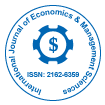Theme:
Publicad Congress-2020
International Conference on Public Administration & Policy Management
International Conference on Public Administration and Policy Management will provide a focused approach to showcase exemplary scholarship and practice in the field. The topic included are not limited to human resources, public management, ethics and integrity, public safety, emergency management, public administration theory, the environment and technology—are as important to this dialogue as ever and are incorporated in this year's track details.
Public administration is a field of political science that plans organizes, directs, coordinates, and controls operations at Government, Public sector, and non-profit organizations. The Government grants Public Administrators for the authority to advice policymakers based on observations of constituent populations and Society. Every nation employs some form of Public Administration within its government systems. The Public administration is practiced at the local, state, national, and international levels, with different policy goals at each level.
Public managers carry out the managerial operations of Public organizations. In practice, Public Management is meant to improve the quality and efficiency of services delivered by Public organizations. Managers interpret the public policy to implement public services in ways that are expected to achieve the most desirable outcomes for the interests they serve.
Why to attend?
With people from around the world focused on getting some answers concerning Social Science, this is one of the opportunity to accomplish the greatest accumulation of individuals from different universities, associations, research centres etc. “International Conference on Public Administration and Policy Management” at Auckland, New Zealand will coordinate, disperse information, and meet with recurring pattern and potential investigators and get name affirmation at this 2-day event. Broadly acclaimed keynote & plenary speakers explains , Ethics in Public service, importance of revenue in service delivery, local revenue enhancement participant, social equity,infrastructure,the roles of women in nation building, revenue enhancement planning & management for effective local government administration, importance of revenue in service delivery, global public administration, public service, public finance, accountability and social responsibility, administrative law and procedure, ethics in public administration, political governance and political analysis.
The globe may be large, but the public administration world is more inextricably linked than ever before. Actions in nation-states can directly, often quickly, affect policy and administration in others. As important, one nation’s experiences can inform others, providing best practices that bridge the geographic divide and can be applied in a global context. This track addresses public administration from an international perspective. What is working well beyond borders and across oceans? Where do common struggles provide for opportunities to work together to solve them?
Equity, or the lack of it, underpins government’s most important work. Not only should public servants be treated in an equitable fashion, but also the services they provide must be equitable for society to truly advance. Infrastructure must be equitable to enable success for our most under-served populations. Government budgeting and finance must be equitable to enable public works to serve all people. Nations must think globally to ensure their domestic audiences are well served in geo-political contexts. And, we must understand ways to measure the success and impact of equity in public programs. We invite panels and submissions that provide research to shape our understanding of these issues and on-the-ground programs that showcase government for all, done well and equitably.
No matter the public program or service, government must be able to pay for it. Operating in an environment where uncertainty is the norm, predictability can be finance’s best friend. What tools can finance and budget office’s use to identify and address problems before they happen, make fiscally responsible decisions and operate effectively? We invite practices and research aimed at providing ways for administrators to better understand budgeting, fund public programs, anticipate challenges and address current needs on a shoestring. Public administrators can understand and master finance; this track will show them how.
The globe may be large, but the public administration world is more inextricably linked than ever before. Actions in nation-states can directly, often quickly, affect policy and administration in others. As important, one nation’s experiences can inform others, providing best practices that bridge the geographic divide and can be applied in a global context. This track addresses public administration from an international perspective. What is working well beyond borders and across oceans? Where do common struggles provide for opportunities to work together to solve them?
Public service is a bold and noble profession, but one too often subject to demoralizing commentary and pejorative characterization. In the meantime, the rules and practices under which civil servants operate—from recruitment to retention, engagement to training—are drawing heightened attention with an eye toward putting best practices and reform into action. We invite panel submissions that highlight what is working—and working well—across all levels of government, as well as the non-profit sector and those dedicated to the public good.
In the United States and beyond, public infrastructure faces an uphill battle. Examples include crumbling bricks-and-mortar bridges and highways, crowded transportation systems, underdeveloped cyber infrastructure and waterways fraught with health and transportation concerns. Addressing the infrastructure challenge is not about bringing aging systems up to prior standards; it is about foreseeing an infrastructure for the future. How will we pay for it, especially given unpredictable funding streams? How will we manage it with an ever-complex intergovernmental system and reliance on public-private partnerships? We invite innovative research and on-the-ground practices to answer these questions, ideally in ways that are transferable across governmental entities. The stakes have never been higher.
Administrative Law and Procedure
As Written by Prof. William F. Fox Jr. In the broadest sense, administrative law involves the study of how those parts of our system of government that are neither legislatures nor courts make decisions. These entities, referred to as administrative agencies, are normally located in the executive branch of government and are usually charged with the day–to–day details of governing. Agencies are created and assigned specific tasks by the legislature. The agencies carry out these tasks by making decisions of various sorts and supervising the procedures by which the decisions are carried out. For example, Congress has charged the federal Social Security Administration (SSA) with the administration of the nation’s social security program. Under that mandate, SSA does two things: (1) it makes general social security policy (within the terms of the statute, of course) and (2) it processes individual applications for, and terminations of, social security benefits. Affected persons who disagree with the agency’s decisions on either the substance of the social security program or the procedures under which that program is implemented—and whose grievances are not resolved within the agency—are permitted to take their dispute into federal court for resolution. Occasionally, aggrieved persons return to the legislative branch in an attempt to persuade Congress to alter the statute under which the social security program functions.
Accountability and Social Responsibility
Accountability was defined in Study Session 1 as the duty of an organisation or individual to account for their actions and accept responsibility for them. Different aspects of accountability apply to organisations and individuals. Personal accountability is the duty of the individual to take responsibility for his or her actions. Every individual is socially, morally and legally accountable to the community or organisation that they belong to. Defining what this means for each member of a team is often a critical part of a community or organisation leader’s job. Encouraging team members to be personal accountable can have the following results. It can ensure that community members and organisational employees are held accountable to local agreements and bylaws.
Revenue Enhancement Planning & Management for Effective Local Government Administration
Revenue is income collected and received by a Local Government. Revenue refers to a sum of payments received by a LG from individual residents and organizations and transfers by the national government for the purpose of financing service delivery and devolved expenditure functions. The locally raised revenues (LRRs) are expected to be received from within the jurisdiction of the Local Goverments.
Local Revenue Context LRRs are a discretionary source of financing and therefore a critical success factor in providing sustainable service delivery and more especially the operations and Maintenance (O&M) The capacity of local governments to raise and administer local revenues is essential for enhanced decentralization, participatory democracy, and better service delivery. This is the foundation of a genuine local government.
Communities are demanding more services and better services. The need for sustained local revenue enhancement can therefore not be over emphasized. Survival and continued relevance of local governments are critically dependent on betterment of local revenues and in turn service delivery in support for the SDGs and National Vision 2040. Communities are likely to be willing to “buy” the concept if there is a significant linkage to quality and quantity of service delivered.
The Roles of Women in Nation Building
Tayo A Zubair is of the opinion that, Nation Building is a process of constructing and fashioning a national identity. The choice of these key words, process, and construction and fashioning are very fundamental because they are the basic ingredients of nation building. Taking a critical look at these words one will realize that nation building is indeed a process which takes place over a long period of time. It is gradual and not drastic or a sudden occurrence. Construction and fashioning are also very important in nation building because there are things to be constructed and fashioned out, both in physical and intangible terms. Fashioning here is a conscious effort at creating an identity and a national image.
Ethics In Public Service
Policy Making: An Essential Toolkit for Assembly Members & Local Government Councillors
Public Administration Analysis :
In rapidly changing society, there is a desire of fine public administration. Public administration is the planet of study and analysis that linked to law, government, sociology, business management, economics, psychology, technology and engineering. Although the final public administration differs from nation to nation, government and law have significantly affected the event of latest public administration. Within the manager system of any country, the final public service system like officialdom, Policing, and other organisation are main stay of which acts as significant mechanism for governance. Over the number, the role of Public services has transformed depending on the schema of the governance of that individual period. The institution of Public service was reduced service to the socio-economic development of the country. By advising the government day to day, managing programs, and serving citizens, public servants has important role to stay up India’s democratic institutions and nurturing economic affluence and social wellbeing. It’s essential to identify that the discipline of Public Administration has been broadly influenced within the initial stages of its growth, by government and also the science of Management. While the philosophical principle of Public Administration was influenced primarily by government, its technological facet was designed by Management Sciences.
From a public administration point of view, the importance of these Public Service lies in the way how we analysed new modes of channelling human behaviours and new organizational formats based on a formal separation of “political” and “market” behaviours.
Public Finance Research Reports:
As we know, the finance industry deals with money and also the way it absolutely was controlled with a decent kind of senses. There is a giant deal of stake over this industry and research is also an enormous part of what any financial services provider will perform. Market research permits for insights into products and trends, which successively gives a projection on opportunities for sales and it is a decent due to apply financial strategy.
Market research is also a valuable to any financial services provider. Nothing would bear without the any data to duplicate the selections made, effective way for forecasting and analysis of any part of the organisation that needs changing. Although, anything from marketing to internal audit is dose observation by the researchers at any given firm – it’s an integral part of everything financial.
Research authorizes the investment within the foremost growing and fastest moving companies within the globe, and it permits to enlarge the profit within the industry, furthermore as arranges the innovative nature that drives investment. Precisely, within the identical way, market research allows the firms to understand the purchasers that they are serving – their wants, their needs and also the way they're coining – so as that they're going to reply to those changes effectively.
Here are variety of the regular researched markets by top Financial Services providers
- Current and savings accounts
- Pensions
- Insurance
- Financial advice
- Personal loans
- Mortgages
- Investments
- Property
- Credit cards
- Business banking
Conference Highlights
- Public Service
- Global Public Administration
- Social Equity
- Infrastructure
- Public Finance
- Accountability and Social Responsibility
- Administrative Law and Procedure
- Ethics in Public Administration
- Political Governance and Political Analysis
- The Roles of Women in Nation Building
- Revenue Enhancement Planning & Management for Effective Local Government Administration
- Importance Of Revenue In Service Delivery
- Importance Of Revenue In Service Delivery
- Local Revenue Enhancement Participant
- Ethics in public service
To share your views and research, please click here to register for the Conference.
To Collaborate Scientific Professionals around the World
| Conference Date | May 18-19, 2020 | ||
| Sponsors & Exhibitors |
|
||
| Speaker Opportunity Closed | |||
| Poster Opportunity Closed | Click Here to View | ||
Useful Links
Special Issues
All accepted abstracts will be published in respective Our International Journals.
- Journal of Health Education Research & Development
- Arts and Social Sciences Journal
- International Journal of Economics & Management Sciences
Abstracts will be provided with Digital Object Identifier by







